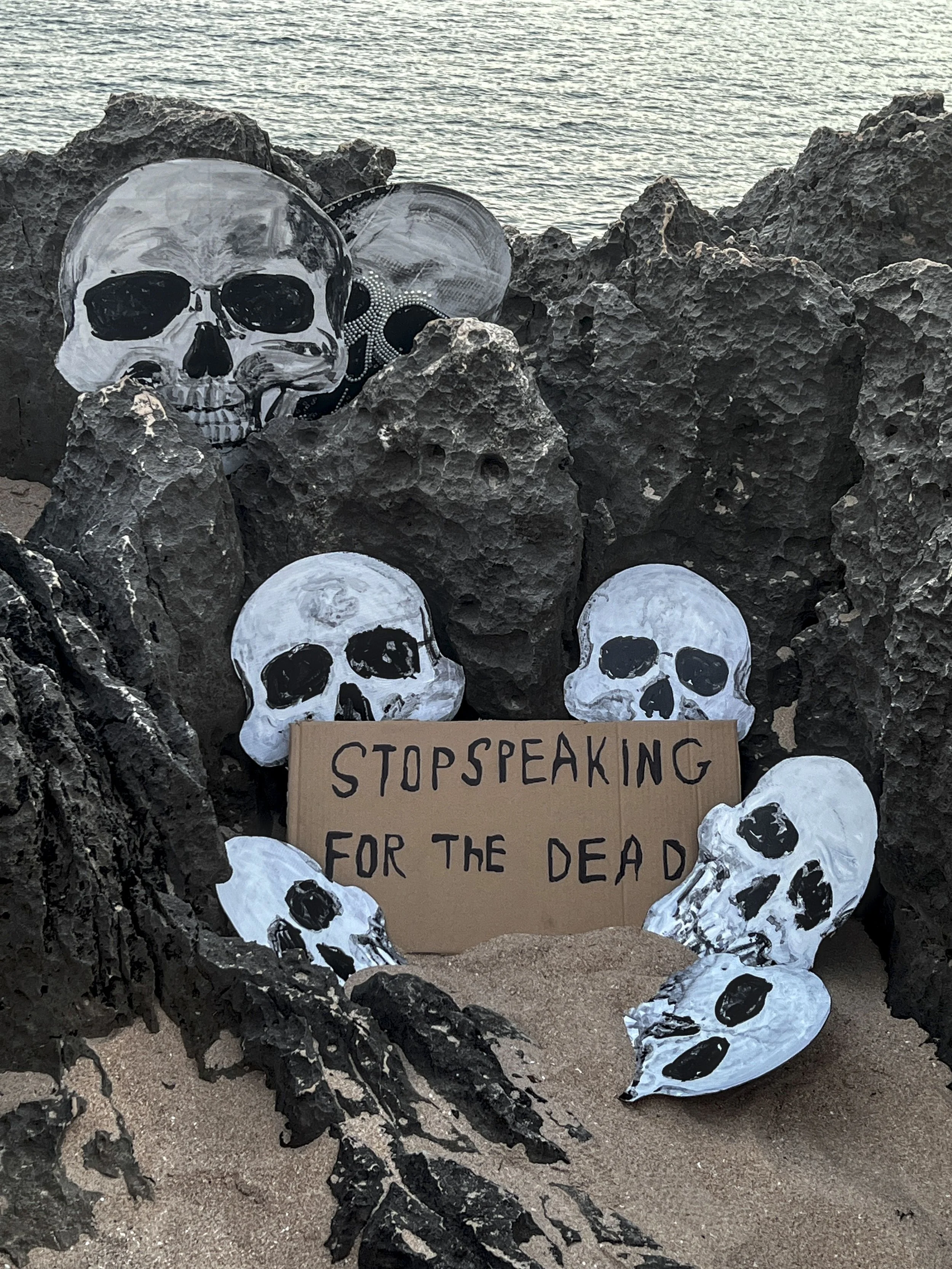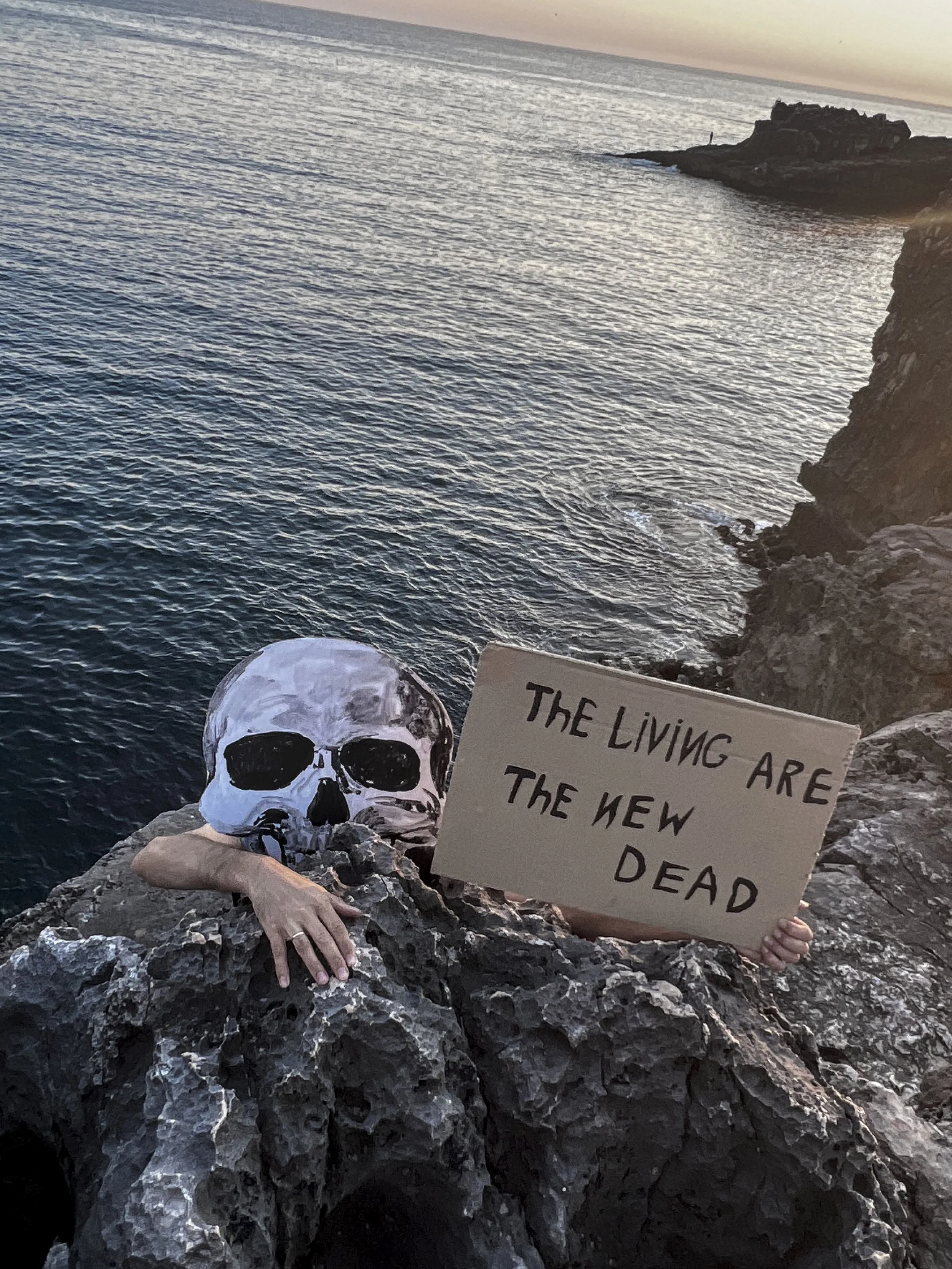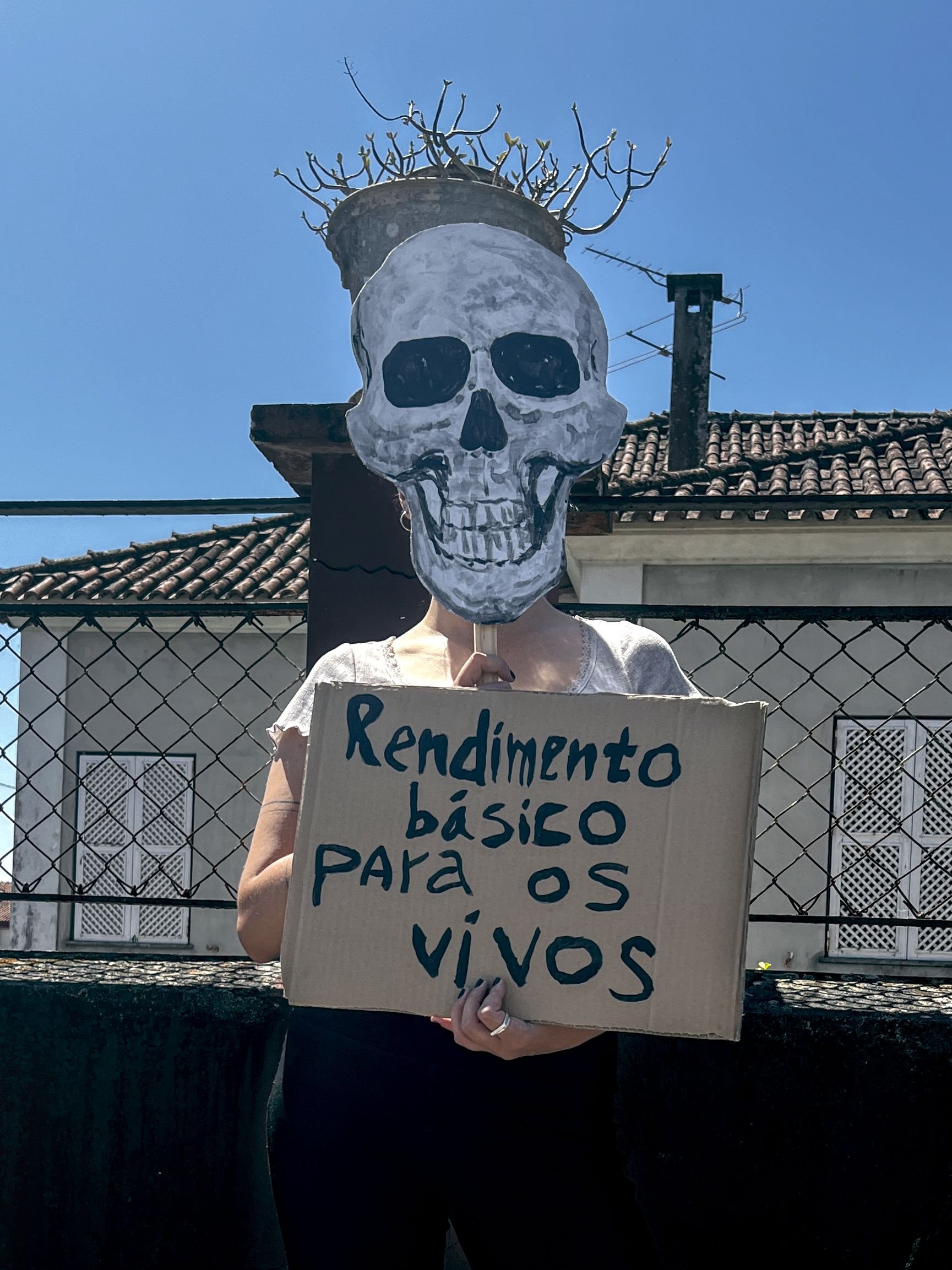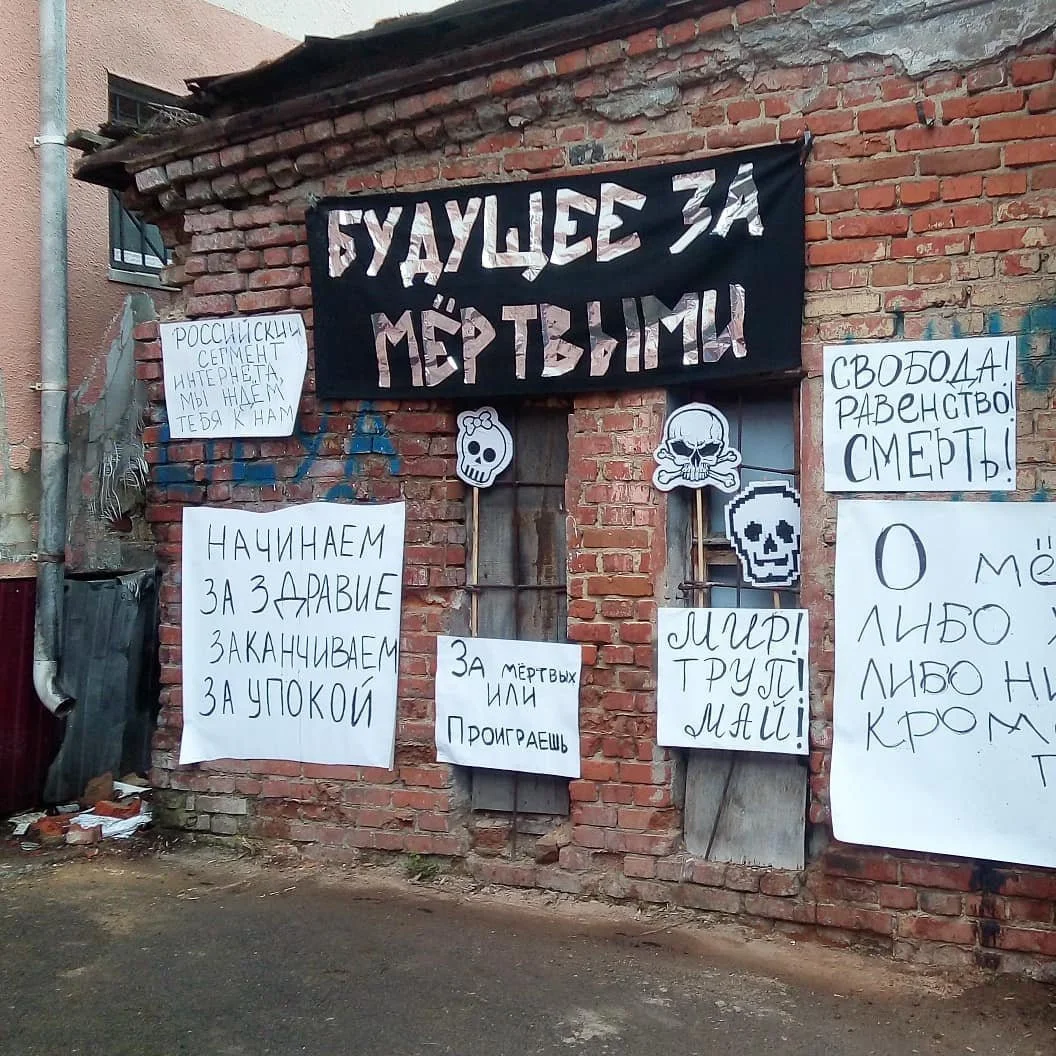
THE Party of the Dead
We work where memory is transformed into an instrument of power. Our target is not the past, but today's practices of appropriation: when the names of the dead are used to legitimize decisions, when the "voice of the dead" replaces public debate, when private grief is transformed into a mass resource—from parades to ballots. We expose these mechanisms: we show how official rhetoric turns the dead into "talking" emblems and societies into silent backdrops. In response, we return memory to its owners—families, communities, local histories—and shift the conversation from the language of slogans to the language of responsibility and fact-checking.
Our position is simple and strict: the voices of the dead are not their own. No one—neither the state, nor political forces, nor ourselves—has the right to speak "for them." Any action we take is not a statement on behalf of the dead, but rather work against making a statement in their stead. We adhere to an ethic of anti-appropriation: speaking about the dead is possible only by revealing the conditions under which their memory is used; acting only in a way that does not further exploit the loss. Hence our rejection of sensationalism, our demand for sources, and our attention to the context of places and names.
The Party of the Dead is not just another party with a program, but a public process of dismantling the language of propaganda. Our goal is to create a space where the dead do not become arguments for others, and where the living learn to be responsible for the ways in which their names are spoken.
Press & Media
Euronews (NBC Left Field) — Meet Russia’s “Party of the Dead” activists
Artnet News — Despite Fear of Reprisal, Russian and Belarusian Artists Keep Protesting the War
Artists at Risk Connection (ARC) — Party of the Dead Exhibition
Moscow Art Magazine — Maxim Evstropov, Party of the Dead: from Necro-Realism to Necro-Activism
Radio Svoboda (RFE/RL Russian Service) — coverage of searches/detentions.





















